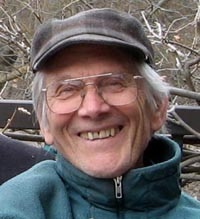(Originally Published in an email from Oregon Peace Works on March 16, 2021)
Pro-Nuclear Power Bill Will Have a Senate Hearing on 3/23. Please testify. |
|
Dear Friends, Oregon PeaceWorks is the grandchild of the successful statewide 1980 ballot measure campaign which halted the development of nuclear power in Oregon. That ballot measure required that in order to site a nuclear plant in Oregon, an operating federal nuclear waste repository had to exist and the proposal had to be subject to a vote of the people of Oregon. Despite nuclear proponents’ claims during the campaign, the industry was not able to meet either of these criteria. Thus our ballot measure has protected Oregonians from the costs and dangers of nuclear power for 40 years. SB 360, which would undermine the provisions of this ballot measure, will receive a public hearing on March 23 at 1 p.m. Please read the following information from Physicians for Social Responsibility about the bill and how you can submit testimony (oral or written) against it. A comprehensive set of talking points about the issue is included.
Take Action to Stop Small Modular Nuclear Reactors in Oregon Oregon Physicians for Social Responsibility 2021 Oregon Legislative Session Testify to the Oregon Senate Committee on Energy & Environment and tell them to reject Senate Bill 360, which would allow for small modular nuclear reactors to be built in Oregon without statewide voter approval or a federally-licensed nuclear waste repository (per current law since 1980).
Background/Issue Summary:
Resources & Materials:
Talking Points:
Sample Testimony Message (click here to submit written testimony): Chair Beyer, Vice-Chair Findley, and members of the Senate Committee on Energy & Environment I am writing to express my opposition to any and all proposed legislation to weaken Oregon’s common-sense restrictions on siting new nuclear power plants. I urge you to reject Senate Bill 360 and any other legislation that would accomplish its goals. Senate Bill 360 would exempt small modular nuclear reactors from Oregon’s rules that require statewide voter approval and a federally-approved nuclear waste repository before a new nuclear power reactor can be sited and built in the state of Oregon. This bill represents a special interest carveout for NuScale Power, which has received millions of dollars in federal subsidies, moved back its estimated completion date for its first pilot project in Idaho from 2015 to 2029, and increased in cost from $3 billion to $6.1 billion in the last five years. Senate Bill 360 would allow small modular nuclear reactors to be sited in cities and counties with no cross-county emergency planning zone. This month we marked 10 years since the Fukushima nuclear disaster, which forced 150,000 people to evacuate their homes and has caused continued radioactive contamination of 1.5 million people’s homes in the Fukushima Prefecture at levels that are unsafe for children and pregnant mothers. The evidence from prior nuclear disasters including the one at Chernobyl has made it clear that a single Oregon county is an unacceptably small emergency planning zone for the scale of nuclear disasters. You will hear NuScale claim that a smaller reactor would be safer than a conventional large nuclear reactor and would produce less radioactive waste. These are both disingenuous claims because NuScale plans to stack up to 12 of its modular nuclear reactors at a single site, and their technology would produce slightly more radioactive waste per kilowatt-hour of electricity generated than a conventional nuclear reactor. Furthermore, every nuclear reactor disaster in the history of the world has occurred amid sweeping claims of safety and infallibility only to be thwarted by unforeseen errors in the case of Chernobyl and poor upkeep of machinery in the case of Fukushima. You will also hear NuScale claim that its technology is a vital piece of the carbon-free landscape of technologies needed to address the global climate crisis and drive down the greenhouse gas emissions from our electricity sector. The exorbitant and rising cost projections and federal regulatory hurdles facing new nuclear power mean that new nuclear power reactors cannot credibly be considered a tool in the decarbonization toolbox. Furthermore, the greenhouse gas emissions footprint of uranium mining, transport, and long-term storage of nuclear waste make nuclear power one of the most carbon-intensive forms of non-fossil-fuel-based energy sources. The U.S. nuclear industry has disproportionately harmed indigenous peoples since day one of the Manhattan project. The legacy of uranium mining continues to harm Tribes from the Spokane Tribe to the Navajo Nation and beyond. At a time when the Oregon legislature is considering a wide range of policies to advance environmental justice, we must not humor a conversation about expanding the nuclear power sector. Please reject Senate Bill 360 and do not entertain additional public hearings for exemptions from Oregon’s common sense limits on the siting of new nuclear power reactors. Sincerely, [Name, city or organizational affiliation, titles if applicable] Thank you very much for your assistance in keeping Oregon free of nuclear power plants. – Peter Bergel |



